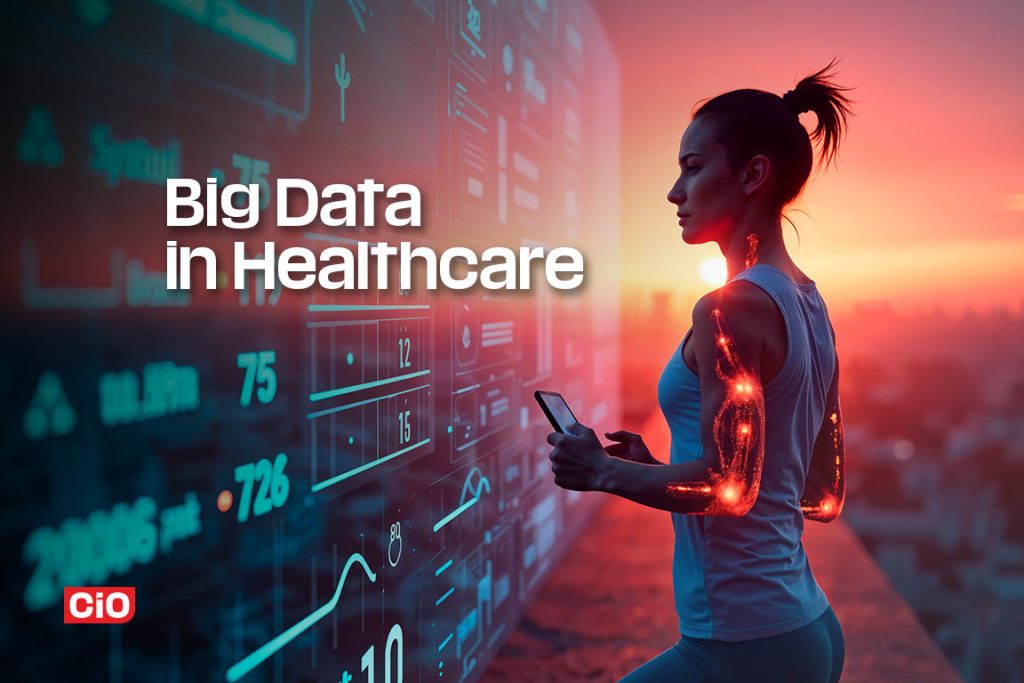Big Data in Healthcare has become a pivotal force driving innovation, improving patient outcomes, and transforming healthcare delivery on a global scale. With the integration of vast data sources from electronic health records (EHR) to real-time wearable device monitoring healthcare organizations are unlocking new opportunities to enhance both operational efficiency and patient care.
This transformation is not just a trend but a necessary evolution to meet the growing demands of modern healthcare systems.
The Rise of Big Data in Healthcare
The healthcare industry has always been data-rich, but it has often struggled to harness the full potential of this information. With advancements in technology, particularly in cloud computing and machine learning, healthcare systems now have the tools to capture, store, and analyze enormous volumes of data at unprecedented speeds.
The healthcare ecosystem generates an immense amount of data daily, including patient records, diagnostic results, medical imaging, treatment outcomes, insurance claims, and more. However, the true value of Big Data in Healthcare lies in the ability to analyze and interpret these massive datasets to provide actionable insights that can directly impact patient care, reduce costs, and improve operational workflows.
How Big Data is Enhancing Patient Care
Personalized Treatment Plans
One of the most profound impacts of Big Data in Healthcare is the shift toward personalized medicine. By analyzing vast datasets that include a patient’s genetic information, lifestyle factors, medical history, and treatment responses, healthcare providers can tailor treatments to the individual rather than relying on a one-size-fits-all approach.
For example, genomics data allows physicians to identify specific genetic markers associated with certain diseases or conditions, enabling them to offer targeted therapies that are more likely to succeed. This precision medicine model can significantly improve patient outcomes by reducing trial-and-error approaches to treatment, minimizing adverse effects, and improving overall quality of life.
Predictive Analytics for Early Detection
Another key application of Big Data in Healthcare is predictive analytics. By utilizing historical data and machine learning algorithms, healthcare providers can identify early warning signs of diseases or conditions before they become critical. For example, predictive models can analyze patterns in patient data, such as blood pressure, cholesterol levels, and family medical history, to predict the risk of developing heart disease, diabetes, or other chronic conditions.
This ability to predict health issues before they manifest allows for proactive interventions, reducing hospital readmissions and improving long-term health outcomes. Early detection also contributes to cost savings by preventing more serious conditions that require expensive treatments.
Enhancing Decision-Making and Clinical Efficiency
Big Data is also transforming how clinicians make decisions. In today’s fast-paced healthcare environment, timely and accurate decision-making is crucial. Data-driven decision-making tools powered by Big Data in Healthcare can support clinicians by providing them with real-time access to comprehensive patient information, best practice guidelines, and even the latest research findings.
For example, machine learning algorithms can analyze thousands of medical papers and clinical trial results to recommend evidence-based treatments for specific conditions, enhancing the decision-making process. This not only ensures that patients receive the most effective treatment, but also helps to reduce diagnostic errors and improve overall clinical efficiency.
The Role of Big Data in Healthcare Administration
Streamlining Operations and Reducing Costs
Beyond clinical applications, Big Data in Healthcare is also revolutionizing the administrative side of healthcare organizations. By leveraging data analytics, hospitals and healthcare systems can optimize their operations, reducing inefficiencies and operational costs. For example, Big Data can help with supply chain management, allowing hospitals to forecast demand for medical supplies and medications, reducing waste, and ensuring they are always well-stocked.
Moreover, predictive analytics can help healthcare providers manage staffing needs more efficiently. By analyzing patient flow patterns and historical data, hospitals can better predict patient volume, enabling them to allocate resources more effectively and avoid overcrowding.
Fraud Detection and Compliance
Another area where Big Data in Healthcare is making a significant impact is in fraud detection and compliance. Healthcare fraud is a major issue, costing the industry billions of dollars each year. By analyzing billing data and patient records, healthcare organizations can identify suspicious patterns of fraudulent activity, such as overbilling or unnecessary treatments.
Big Data also plays a crucial role in ensuring compliance with regulatory standards, such as the Health Insurance Portability and Accountability Act (HIPAA). Data analytics tools can help organizations track and monitor access to sensitive patient information, ensuring that they are meeting privacy and security requirements.
Overcoming Challenges in Big Data Adoption
While the potential of Big Data in Healthcare is immense, several challenges need to be addressed before its full potential can be realized. Key obstacles include data privacy concerns, integration of disparate data sources, and the need for skilled professionals to analyze and interpret complex datasets.
Healthcare organizations must ensure that they are compliant with data protection regulations and that patient data is anonymized to prevent breaches of privacy. Additionally, the integration of various data systems and platforms across different healthcare providers remains a challenge. Overcoming these hurdles will require collaboration between stakeholders, including healthcare providers, technology companies, and regulatory bodies.
Conclusion
The role of Big Data in Healthcare is undeniable—it is reshaping how healthcare systems operate, how clinicians provide care, and how patients experience treatment. With the continued advancement of data analytics tools, the healthcare industry is poised for a new era of personalized, efficient, and proactive care.
As Big Data continues to evolve, its potential to improve patient outcomes and streamline healthcare administration will only grow, making it a critical tool for healthcare leaders looking to stay ahead in a rapidly changing industry. For CIOs and business leaders in healthcare, the time to embrace Big Data is now those who do will lead the way in shaping the future of patient care.




